Home » Letters » Request Letters » Request Letter to University for Library Access – Sample Letter to University Requesting for Access to Library

Request Letter to University for Library Access – Sample Letter to University Requesting for Access to Library
Table of Contents:
- Sample Letter
Live Editing Assistance
How to use live assistant, additional template options, download options, share via email, share via whatsapp, copy to clipboard, print letter, sample letter to university requesting for access to library.
To, The Officer In-charge, _________ (University’s Name) _________ (University’s Address)
Date: __/__/_____ (Date)
Subject: Request for library access
Sir/ Madam,
My name is _________ (name) and I am a student of your reputed university. I am studying in __________ (department) department having roll number _________ (mention your roll number).
I am writing this letter with the utmost respect to inform you that I am not having library access due to which, I am unable to issue the books from the library. Respected Sir/ Mam, I request you to kindly grant me library access so that I will be able to ________ (read/get course books issued from the library/study/other).
I once again request you to kindly do the needful at the earliest. I shall be thankful to you.
Thanking you, ____________ (Signature), ____________ (Name), ____________ (Roll number)
Live Preview
The Live Assistant feature is represented by a real-time preview functionality. Here’s how to use it:
- Start Typing: Enter your letter content in the "Letter Input" textarea.
- Live Preview: As you type, the content of your letter will be displayed in the "Live Preview" section below the textarea. This feature converts newline characters in the textarea into <br> tags in HTML for better readability.
The letter writing editor allows you to start with predefined templates for drafting your letters:
- Choose a Template: Click one of the template buttons ("Start with Sample Template 1", "Start with Sample Template 2", or "Start with Sample Template 3").
- Auto-Fill Textarea: The chosen template's content will automatically fill the textarea, which you can then modify or use as is.
Click the "Download Letter" button after composing your letter. This triggers a download of a file containing the content of your letter.
Click the "Share via Email" button after composing your letter. Your default email client will open a new message window with the subject "Sharing My Draft Letter" and the content of your letter in the body.
Click the "Share via WhatsApp" button after you've composed your letter. Your default browser will open a new tab prompting you to send the letter as a message to a contact on WhatsApp.
If you want to copy the text of your letter to the clipboard:
- Copy to Clipboard: Click the "Copy to Clipboard" button after composing your letter.
- Paste Anywhere: You can then paste the copied text anywhere you need, such as into another application or document.
For printing the letter directly from the browser:
- Print Letter: Click the "Print Letter" button after composing your letter.
- Print Preview: A new browser window will open showing your letter formatted for printing.
- Print: Use the print dialog in the browser to complete printing.
- Including department and roll number helps university officials identify the student and process the request efficiently.
- The subject line should clearly state the purpose of the letter, which is a request for library access.
- You can address them as "Sir/Madam" or "Dear Sir/Madam" to maintain a respectful tone.
- Yes, providing reasons helps university officials understand the importance of the request and may expedite the process.
- Yes, expressing gratitude shows politeness and appreciation for the recipient's attention to the request.
Incoming Search Terms:
- Sample letter requesting library access in University
- Request letter for library access from University
By letterskadmin
Related post, commuted leave application for teacher – sample application for commuted leave in school, sponsorship letter for tourist visa – sample letter for sponsoring tourist visa.
Holiday Request Letter – Sample Letter Requesting Leave
Application for earned leave – sample application for earned leave, resignation letter after maternity leave – sample letter requesting resignation post-maternity leave, 5 days leave application for office – sample application for 5 days leave, annual leave request email – how to request annual leave via email, privacy overview.
Perfect Pitch: Publishers' Tips for Requesting an Author Visit
ALA Public Programs Office
So, you want to host an author — either in person or virtually — at your library. Where do you start? When do you start? And what do you say in the dreaded pitch email?
Library marketing contacts at each publishing house are happy to work with you to arrange author visits, but it helps to be prepared. We spoke to several publisher marketing reps and asked how library workers can make their requests stand out from the pack. Here's what they said.
Also, scroll down for a helpful directory of publisher contacts .
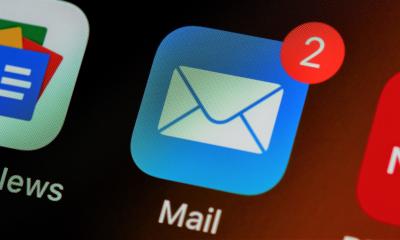
Ask for the specific author you want
You might think you’re making a marketing rep’s job easier by being flexible, but asking, “which authors do you have?” is not their preferred approach. A specific ask is more productive and more likely to get a timely reply.
Give plenty of lead time
Your request is likely to get a better result if you send it far in advance of your target date. Marketing reps recommend contacting them at least four to six months ahead of time.
Write a thorough pitch
You can waste lots of time writing back and forth with a marketing rep — time that they could be spending lining up your speaker. To avoid this, include all the information you have up front.
Your contact will want to know what event format you are envisioning (Q&A or panel? In-person or virtual?), who the bookseller will be at the event, and the approximate number of attendees you expect. Also include whether you are able to offer an honorarium and/or expense coverage. While these are not necessary, know that most author events take place while the author is touring with their most recent book — unless the library is able to cover travel costs.
Finally, if you can, include a list of authors you’ve hosted previously, along with attendance numbers and the total books sold. If you don’t have this information at the ready, start collecting it for future pitches.
Send your pitch to the right place
A carefully crafted pitch won’t do any good if it winds up in an abandoned email inbox. The final — and perhaps most important — step is getting your email into the right hands.
To help, we compiled the below contact list for publishing companies and their many imprints. Some publishers have library marketing reps listed on their contact pages; for others, look for publicity contacts. If a website offers neither of these, email the general email address.
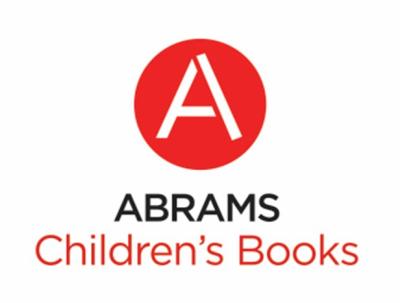
Imprints: Abrams Appleseed, Abrams Books for Young Readers, Amulet Books, Magic Cat
Contact: ABRAMS Children’s Books
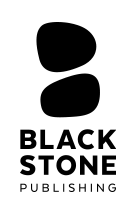
Contact: Blackstone Publishing
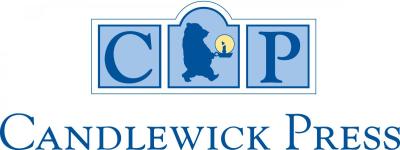
Imprints: Big Picture Press, Candlewick Entertainment, Candlewick Studio, Nosy Crow, Templar, Walker Books US
Contact: Candlewick Press
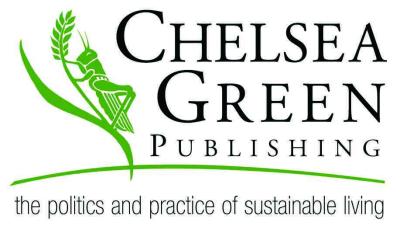
Contact: Chelsea Green Publishing
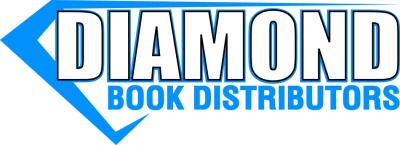
Imprints: Image Comics, Ablaze, A Wave Blue World, AfterShock Comics, AWA, Ahoy Comics, Albatross Funnybooks, Dynamite Entertainment, Green Ronin, Heavy Metal, Image Comics, Manga Classics, Paizo, Storm King Productions, Tokyopop, Udon Entertainment, Valiant, Vault Comics, Zenescope Entertainment
Contact: Diamond Book Distributors

Imprints: Disney Hyperion, Disney Press, Disney Lucasfilm Press, Freeform, Hyperion Books for Children, Marvel Press, Rick Riordan Presents
Contact: Disney Publishing Worldwide
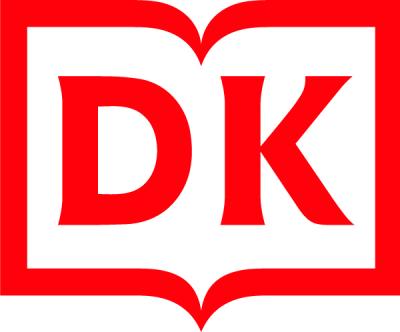
Contact: DK
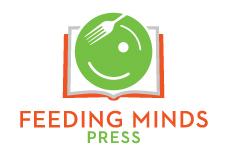
Contact: Feeding Minds Press
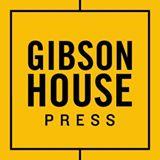
Contact: Gibson House Press

Imprints: Avalon, Basic Books, Grand Central Publishing, Hachette Audio, Hachette Books,Hachette Nashville, Little, Brown and Company, Orbit, PublicAffairs, Running Press, JIMMY Patterson Books
Contact: Hachette Book Group
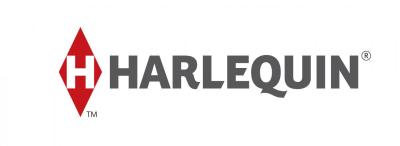
Imprints: Graydon House, Hanover Square Press, HQN, Inkyard Press, MIRA Books, Park Row Books
Contact: L inette Kim , Library Marketing Manager
Imprints: Amistad, Broadside, Custom House, Dey Street Books, Ecco, Harper, Harper 360, Harper Business, HarperCollins Español, Harper Design, HarperOne, Harper Perennial, HarperVia, Harper Voyager, Harper Wave, William Morrow
Contact: HarperCollins Publishers
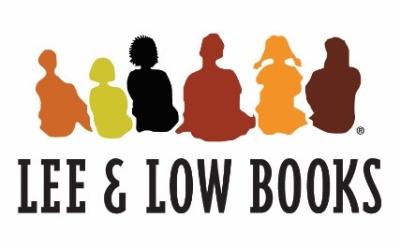
Imprints: Bebop Books, Children's Book Press, Lee & Low Books, Shen's Books, Tu Books
Contact: Lee & Low Books
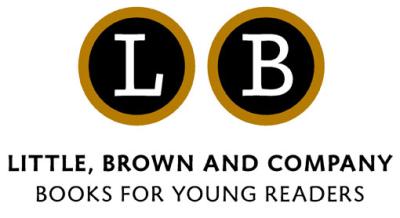
Contact: Little, Brown Books for Young Readers
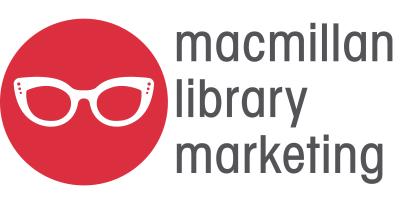
Imprints: Celadon Books, Farrar, Straus & Giroux, Flatiron Books, Forge Books, Henry Holt & Co., Macmillan Audio, Minotaur Books, Picador, St. Martin's Press, Tor Books, Wednesday Books
Contact: Macmillan Publishers
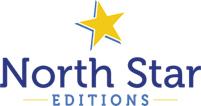
Imprints: Flux, Jolly Fish Press, Press Box Books, Little Blue Readers, Focus Readers, North Star Classroom
Contact: North Star Editions or Emily Temple
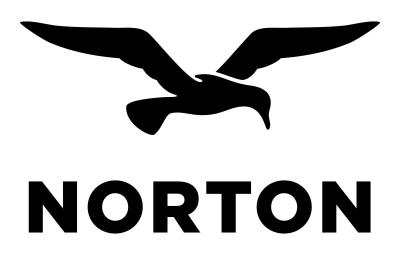
Imprints: Countryman Press, Liveright, Norton Young Readers. Distributors for: Abbeville, Fantagraphics, Kales Press, New Directions, Penzler Publishers, Persea Books, Pushcart Press, Thames & Hudson, Tilbury House, Tin House, Well-Trained Mind Press.
Contact: W.W. Norton & Company, Inc.
Imprints: Beginning-to-Read, Matt Christopher Sports Library, Norwood Discovery Graphics, Read and Discover, Team Spirit
Contact: Norwood House Press
Contact: Other Press

Contact: Penguin Random House Library Marketing

Contact: Penguin Young Readers Group
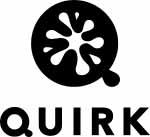
Contact: Quirk Books
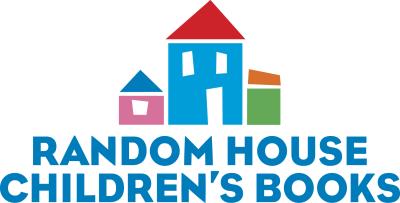
Contact: Random House Children's Books
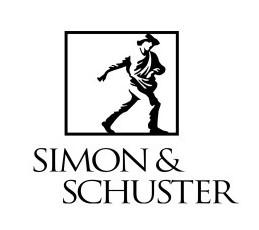
Children's Imprints: Aladdin, Atheneum Books for Young Readers, Beach Lane Books, Little Simon, Margaret K. McElderberry Books, Paula Wiseman Books, Simon & Schuster Books for Young Readers, Simon Spotlight
Adult Imprints: Adams Media, Atria Books, Avid Reader Press, Gallery Books Group (includes Scout Press and Saga), Howard, One Signal, Scribner, Simon & Schuster, Tiller
Contact: Simon & Schuster
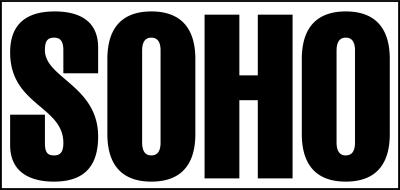
Imprints: Soho Crime, Soho Press, Soho Teen
Contact: Soho Press
Imprints: Sourcebooks Explore, Sourcebooks Jabberwocky, Sourcebooks Fire, Sourcebooks Wonderland, Sourcebooks Young Readers, Simple Truth, Sourcebooks, Sourcebooks Landmark, Sourcebooks Casablanca, Poisoned Pen Press, Dawn Publisher, Cumberland, Little Pickle Press, Sphinx Publishing, Prufrock Press (distribution client)
Contact: Sourcebooks Children's Authors , Sourcebooks Teen & YA Authors
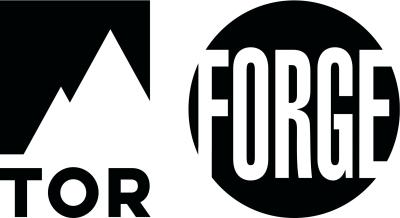
Imprints: Forge, Nightfire, Tor, Tordotcom Publishing, Tor Teen, Starscape
Contact: Tor/Forge Books

Imprints: Algonquin, Algonquin Young Readers, Artisan, duopress, Erewhon, The Experiment, Familius, Storey, Timber, Workman
Contact: Workman Publishing Company

Authors @ your library
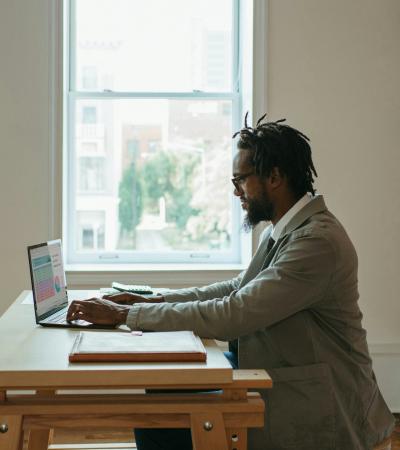
Author Events Made Easy

- Author Visits
- Testimonials
- Request a Catalog
- For Writers & Illustrators

8 Ideas for Educators to Get Students Excited About the Public Library This School Year
Do you know how many books your students or their families own or even have access to? The start of school is a great time to introduce (or reintroduce) children (and their families) to the public library.
In the home visits many of us make at the beginning of each school year, they are powerful opportunities to see not only where our students live, but also where they study and keep their books. I learned that many of my students had only a few books in their homes and our classroom libraries would be vital to enabling student discovery of new interests and topics, as well as access to texts at and above their levels.
Families may not be able to afford books or find few books for sale. For example, one study of low-income neighborhoods in Philadelphia found one book for sale for every 300 children.
As we set out to create literacy-rich environments in our classrooms this school year, let us remember a powerful ally in the community: public libraries.
September is also Library Card Sign-Up Month so many public libraries have programs and resources available to students of all grades. Check with your nearest branch to see field trip availability, possible funding, and to download and distribute the library card application.
Below are just 8 ways to get students thinking about public libraries and how these spaces can help them this school year.
Before You Go
1. Read Aloud Book Recommendations
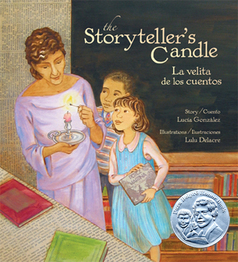
- Lee & Low Teacher’s Guide for The Storyteller’s Candle

- Lee & Low Teacher’s Guide for Richard Wright and the Library Card
- Comparing The Storyteller’s Candle and Richard Wright and the Library Card

- Lee & Low Teacher’s Guide for Destiny’s Gift
Questions during reading
- Why does this character/historical figure believe in the power of books?
- What obstacles does this person have to overcome to achieve his/her goal?
- How do reading books change the main characters/historical figures?
- How does this person demonstrate respect or show appreciation for books and the library space?
- Why are libraries an important part of a community?
- Should having a library in a community be a right or is it a privilege?
2. Shared Reading Activity — The following articles, which can be downloaded as a PDF file, contain information at just the right level for readers. Comprehension questions also included:
*note: must sign-up to read, but free for teachers
“ A Helper at the School Library ” by ReadWorks.org
“ A New Kind of Library ” by ReadWorks.org
“ Homework takes over the library for kids without Internet ” by Newsela
“ A Chicago library’s books hit the road on two wheels ” by Newsela
3. Bring in a library book for students to observe — Compare the library book to a classroom book. Note the spine label on the side, the barcode label on the back, the plastic covering, the library pocket, and so on.
Finally, before your class visits the library, print off library card applications for students to fill out in class or at home with their families. This will streamline the process at the library and students will have the necessary information like their home addresses to obtain the cards. With cards in the hand, students can borrow some books!
If Doing a Visit or Field Trip, Here Are Some Activities at the Library:
4. Interview a librarian— Have students brainstorm a list of questions before they visit to ask, including:
- What motivated him/her to become a librarian?
- What is his/her favorite part of being a librarian?
- What are some of the challenges of a library?
- Why is it important for communities to have libraries?
- How have libraries changed? How has this library changed since it first opened?
- What can someone do at a library in addition to reading books?
- What if someone does not speak English (or very well)? What resources can he/she use to get the most out of the library? How does the library make an inclusive space for multiple languages?
5. Library scavenger hunt— Premade lists for grade bands are available from ALA. Ideas include:
- Get the signature of two librarians.
- What is the name of the Children’s Librarian?
- How much does it cost to make a copy in the library?
- List two magazine titles the library has available to read.
- Find a chapter book with an author whose last name begins with “D.” What is the title of the book?
- What newspaper does the library have for reading?
- How many computer stations does the library have for visitors to use?
- Have students try to find a couple of the read alouds you have already read in class this year, such as The Storyteller’s Candle / La velita de los cuentos or Richard Wright and the Library Card .
Activities After the Visit to the Library
6. Create a poster to advertise the local library — With words and pictures, explain the benefits of visiting a library and highlight the perks of the space. How is the library rewarding to one’s education? How can a library help with homework? Depending on the class size and the amount of posters, encourage students to donate their poster to each classroom in the school as well as the main office to post on the bulletin board.
7. Write a thank you letter to the children’s or teen’s librarian or community volunteers . Encourage students to include what book title they would like to borrow first with their new library cards.
8. As a class, brainstorm a list of ideas on how to responsibly treat a borrowed library book. What does being responsible with a library book look like? Record student ideas on a chart. Look up the behavior rules on the library website. Post this list in the classroom library as a reminder for all borrowed books throughout the year.
How to make a trip to the library affordable and achievable:
- Most important: TALK to the librarians! Many public libraries have back-to-school programs available (or preferred times for such visits) and schedules that work with the school calendar. The children’s or teen librarian may also know of funding or grants available specifically for school visits to the library.
- Make it a family affair. While optional, encourage students’ families to join you on a Saturday at the library. This will save you having to pay for bussing or coordinate chaperones as students will attend with their families.
- Absolutely can’t get off campus? Make sure to prioritize a program at your school library or see if the public library has school-visit programs.
- Virtual field trips: (elementary school age) KidVision VPK Library Field Trip and (middle school age) Tour the Library by Harper College Library or Check It Out by Topeka Library
For further reading on educators engaging librarians for student achievement:
- Strategies to Help Educators Explain Lexile and Invest Stakeholders
Dear librarians — What other ideas do you suggest or have you seen work well for encouraging students to discover all that the library has to offer them (and their families) this school year? Share with us!
Jill Eisenberg, our Senior Literacy Specialist, began her career teaching English as a Foreign Language to second through sixth graders in Yilan, Taiwan as a Fulbright Fellow. She went on to become a literacy teacher for third grade in San Jose, CA as a Teach for America corps member. In her column at The Open Book, she offers teaching and literacy tips for educators.
Share this:
2 thoughts on “8 ideas for educators to get students excited about the public library this school year”.
- Pingback: December 2nd | Week in Review | Vamos a Leer
- Pingback: March 24th | Week in Review | Vamos a Leer
Comments are closed.
- Website Inauguration Function.
- Vocational Placement Cell Inauguration
- Media Coverage.
- Certificate & Recommendations
- Privacy Policy
- Science Project Metric
- Social Studies 8 Class
- Computer Fundamentals
- Introduction to C++
- Programming Methodology
- Programming in C++
- Data structures
- Boolean Algebra
- Object Oriented Concepts
- Database Management Systems
- Open Source Software
- Operating System
- PHP Tutorials
- Earth Science
- Physical Science
- Sets & Functions
- Coordinate Geometry
- Mathematical Reasoning
- Statics and Probability
- Accountancy
- Business Studies
- Political Science
- English (Sr. Secondary)
Hindi (Sr. Secondary)
- Punjab (Sr. Secondary)
- Accountancy and Auditing
- Air Conditioning and Refrigeration Technology
- Automobile Technology
- Electrical Technology
- Electronics Technology
- Hotel Management and Catering Technology
- IT Application
- Marketing and Salesmanship
- Office Secretaryship
- Stenography
- Hindi Essays
- English Essays
Letter Writing
- Shorthand Dictation
Write a letter to the librarian of a university seeking permission to use its library for reference.
1 November 2007
The Chief Librarian
Central Library
Panjab University University
Chandigarh.
Sub: Permission to use the Reference Library.
I am a practicing lawyer aged thirty-five, with a lively interest in human studies, focused on lifestyles and behavioral tendencies, and on how these characteristics relate to modern societies. I plan to nourish my interest further by acquiring enough knowledge in relevant subjects like the humanities, law, and environment, and social sciences.
On a recent occasion, when I visited your library, I saw for myself, the rich collection of books and research material which is contained and which are of relevance to my venture. This letter, besides being an attempt to invite, your attention to my work, is also meant to request your permission for access to your library, which I wish to use solely for reference.
If you agree to my interest, kindly inform me accordingly. Your response, which I eagerly await, may be sent in the accompanying self-addressed, stamped envelope.
Thanking you,
Yours faithfully,
(Name, Signature)
(Writer’s address)
About evirtualguru_ajaygour

Leave a Reply Cancel reply
Your email address will not be published. Required fields are marked *
Quick Links

Popular Tags
Visitors question & answer.
- Anska on Hindi Essay on “Parishram Saphalta ki Kunji Hai” , ”परिश्रम सफलता की कुंजी है ” Complete Hindi Essay for Class 10, Class 12 and Graduation and other classes.
- TEJAS on Hindi Essay on “Manoranjan Ke Adhunik Sadhan” , ” मनोरंजन के आधुनिक साधन” Complete Hindi Essay for Class 10, Class 12 and Graduation and other classes.
- Hania Shakeel on Hindi Essay on “Yadi mein Adhyapak Hota”, “यदि मैं अध्यापक होता” Complete Essay, Paragraph, Speech for Class 7, 8, 9, 10, 12 Students.
- Keshav on Hindi Essay on “Ekta me Shakti” , ”एकता में शक्ति” Complete Hindi Essay for Class 10, Class 12 and Graduation and other classes.
- Fucker on Short Story ”A Faithful Dog and its Master” Complete Story for Class 10, Class 12 and other classes.
Download Our Educational Android Apps

Latest Desk
- Samkaleen Bhartiya Mahilaye “समकालीन भारतीय महिलाएं” Hindi Essay, Nibandh 1000 Words for Class 10, 12 Students.
- Nijikarn – Gun evm Dosh “निजीकरण: गुण एवं दोष” Hindi Essay, Nibandh 1200 Words for Class 10, 12 Students.
- Bharat mein Mahilaon ke Rajnitik Adhikar “भारत में महिलाओं के राजनीतिक अधिकार” Hindi Essay, Nibandh 700 Words for Class 10, 12 Students.
- Bharat mein Jativad aur Chunavi Rajniti “भारत में जातिवाद और चुनावी राजनीति” Hindi Essay, Nibandh 1000 Words for Class 10, 12 Students.
- Example Letter regarding election victory.
- Example Letter regarding the award of a Ph.D.
- Example Letter regarding the birth of a child.
- Example Letter regarding going abroad.
- Letter regarding the publishing of a Novel.
Vocational Edu.
- English Shorthand Dictation “East and Dwellings” 80 and 100 wpm Legal Matters Dictation 500 Words with Outlines.
- English Shorthand Dictation “Haryana General Sales Tax Act” 80 and 100 wpm Legal Matters Dictation 500 Words with Outlines meaning.
- English Shorthand Dictation “Deal with Export of Goods” 80 and 100 wpm Legal Matters Dictation 500 Words with Outlines meaning.
- English Shorthand Dictation “Interpreting a State Law” 80 and 100 wpm Legal Matters Dictation 500 Words with Outlines meaning.

45,000+ students realised their study abroad dream with us. Take the first step today
Meet top uk universities from the comfort of your home, here’s your new year gift, one app for all your, study abroad needs, start your journey, track your progress, grow with the community and so much more.

Verification Code
An OTP has been sent to your registered mobile no. Please verify

Thanks for your comment !
Our team will review it before it's shown to our readers.

- School Education /
Write a Letter to Your Principal Asking Him for Permission to Use the Library After School Hours: Check Samples and Format

- Updated on
- Mar 16, 2024
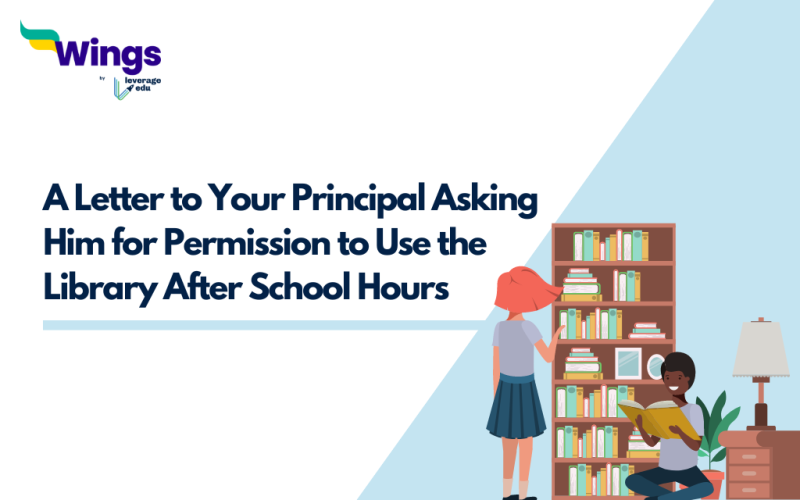
The progressive educational environment has raised the importance of libraries for students beyond school hours. As academic duties and extracurricular engagements increase during the day, there is less time for the utilization of the invaluable world of books. To solve this problem, school teachers often ask the students to write a letter to their principal, asking him for permission to use the library after school hours.

The letter writing helps the student express their concern for their academic exploration beyond the classroom.
Table of Contents
- 1 Sample 1: Write a Letter to Your Principal Asking Him for Permission to Use the Library After School Hours
- 2 Sample 2: Write a Letter to Your Principal Asking Him for Permission to Use the Library After School Hours
- 3 Write a Letter to Your Principal Asking Him for Permission to Use the Library After School Hours: Format
Also Read: Write a Letter to Your Friend Thanking Him for the Birthday Gift: Samples
Sample 1: Write a Letter to Your Principal Asking Him for Permission to Use the Library After School Hours
Also Read: Write a Letter to Your Friend About a Book You Have Recently Read: Check Samples
Sample 2: Write a Letter to Your Principal Asking Him for Permission to Use the Library After School Hours
Also Read: Write A Letter To Your Friend Advising Him To Visit Public Library: Check Format and Samples
Write a Letter to Your Principal Asking Him for Permission to Use the Library After School Hours: Format
Also Read: Write a Letter to Your Friend About Arranging a Get Together: Check Format and Samples
Ans: Here is a short sample of letter writing asking for permission to use the school library: Dear Principal, I am working on an important project and require access to the library resources after school hours. Please permit me to utilize the library facilities during this time. I will adhere to all rules and regulations.
Ans: To write a letter to the Principal for keeping the library open on weekends below short example that can be taken into consideration: Dear Principal, my reading skills would greatly benefit from utilizing the library’s resources on weekends when I have more free time. I kindly request your consideration to keep the library open on Saturdays/Sundays. This opportunity would be invaluable.
Ans: Here are some lines that can go for writing a letter to the Principal requesting for an extra library period: Dear Principal, I would like to request an additional library period in my schedule. Having extra time dedicated to research and exploration in the library would significantly enhance my academic growth and knowledge acquisition.
Check out other interesting topics of letter writing:
Follow Leverage Edu for more interesting topics on Letter Writing and engaging content on School Education
Deepika Joshi
Deepika Joshi is an experienced content writer with expertise in creating educational and informative content. She has a year of experience writing content for speeches, essays, NCERT, study abroad and EdTech SaaS. Her strengths lie in conducting thorough research and ananlysis to provide accurate and up-to-date information to readers. She enjoys staying updated on new skills and knowledge, particulary in education domain. In her free time, she loves to read articles, and blogs with related to her field to further expand her expertise. In personal life, she loves creative writing and aspire to connect with innovative people who have fresh ideas to offer.
Leave a Reply Cancel reply
Save my name, email, and website in this browser for the next time I comment.
Contact no. *

Connect With Us
45,000+ students realised their study abroad dream with us. take the first step today..

Resend OTP in


Need help with?
Study abroad.
UK, Canada, US & More
IELTS, GRE, GMAT & More
Scholarship, Loans & Forex
Country Preference
New Zealand
Which English test are you planning to take?
Which academic test are you planning to take.
Not Sure yet
When are you planning to take the exam?
Already booked my exam slot
Within 2 Months
Want to learn about the test
Which Degree do you wish to pursue?
When do you want to start studying abroad.
January 2024
September 2024
What is your budget to study abroad?

How would you describe this article ?
Please rate this article
We would like to hear more.
Have something on your mind?

Make your study abroad dream a reality in January 2022 with
India's Biggest Virtual University Fair

Essex Direct Admission Day
Why attend .

Don't Miss Out

- TUS Library: Midwest
- Library FAQs
- TUS Library: Midwest - Frequently Asked Questions
- 3 About the Library
- 9 Access/Remote Access
- 1 Book orders
- 11 Borrowing
- 9 Citing & Referencing
- 14 Databases
- 1 Exam papers
- 1 Facilities
- 2 Finding Books
- 1 Interlibrary Loan
- 10 IT / Computer / Printing Support
- 15 Research help
- 7 Video tutorials
Answered By: Brian O'Donnell Last Updated: May 17, 2018 Views: 23
You can request a library visit letter at the library issue desk. When visiting the library in question you must bring this letter and your LIT ID with you in order to gain access.
Comments (0)
- Share on Facebook
Was this helpful? Yes 0 No 0
Related Topics
- About the Library
Don't see the answer to your question? Submit your question to us and receive the answer by email.
Call us (061) 293265 Email us [email protected]
How to Write a Letter Requesting a Visit
Cite this chapter.

2064 Accesses
The first step in arranging to visit a center recognized in your specialty is a letter requesting permission.
Whether you are planning to work there, to ask for a fellowship, or to simply pay a short informal visit to a center of excellence, you will have to get in touch with the hospital and obtain their approval. Bear in mind that most likely they will not know anything about you; they may have heard of your chief of surgery, if he or she is well known in the field and may know something basic about your country or even your city, … but that's all. With a single letter, you have to overcome possible misperceptions about your level of expertise, your intentions, or even your city of origin.
This is a preview of subscription content, log in via an institution to check access.
Access this chapter
- Available as PDF
- Read on any device
- Instant download
- Own it forever
- Compact, lightweight edition
- Dispatched in 3 to 5 business days
- Free shipping worldwide - see info
Tax calculation will be finalised at checkout
Purchases are for personal use only
Institutional subscriptions
Editor information
Editors and affiliations.
Reina Sofia University Hospital Serv. Radiología, Córdoba, 14005, Spain
Ramón Ribes
Cardiovascular Surgery Department, Hospital Regional Universitario Carlos Haya, Málaga, Spain
Pedro J. Aranda
C/ Mossèn Cinto Verdaguer 19, 2-7, Sentmenat, 08181, Spain
Rights and permissions
Reprints and permissions
Copyright information
© 2009 Springer-Verlag Berlin Heidelberg
About this chapter
(2009). How to Write a Letter Requesting a Visit. In: Ribes, R., Aranda, P.J., Giba, J. (eds) Surgical English. Springer, Berlin, Heidelberg. https://doi.org/10.1007/978-3-642-02965-3_16
Download citation
DOI : https://doi.org/10.1007/978-3-642-02965-3_16
Publisher Name : Springer, Berlin, Heidelberg
Print ISBN : 978-3-642-02964-6
Online ISBN : 978-3-642-02965-3
eBook Packages : Medicine Medicine (R0)
Share this chapter
Anyone you share the following link with will be able to read this content:
Sorry, a shareable link is not currently available for this article.
Provided by the Springer Nature SharedIt content-sharing initiative
- Publish with us
Policies and ethics
- Find a journal
- Track your research

- Book Solutions
- State Boards
letter to your friend advising to visit the public library
Q. Write a letter to your friend advising to visit the public library in her /his locality as frequently as possible.
Dear Roshan ,
I admit my mistake of not writing to you for long .I hope this letter finds you In good health . Hope that you all are good .I am also good here. I want to tell you Today a very important topic. I am requesting to frequent a good public library regularly Which is near to your resident .This will really help you a lot to prepare well for Your upcoming exams. By visiting a library you can boost your knowledge as well.
Another good thing of library is that you can read so many newspapers and journals which will improve your general knowledge. If you make it your habit then preparing for exams will become a great fun for you.you will enjoy the study as well.
So please let me know in your reply that you have made a library card. I eagerly look forward to receive letter from you.
Your’s lovingly
Anurag Bose
Leave a Reply Cancel reply
Your email address will not be published. Required fields are marked *
Save my name, email, and website in this browser for the next time I comment.
We have a strong team of experienced Teachers who are here to solve all your exam preparation doubts
Sikkim scert class 4 evs chapter 14 norbu goes to school solution, nobel lecture class 11 long questions for semester 2, andhra pradesh scert class 8 physical science semester 1 chapter 5 sound solutions, andhra pradesh scert class 8 physical science semester 1 chapter 4 synthetic fibres and plastics solutions.
Sign in to your account
Username or Email Address
Remember Me

Write a letter to your friend advising her/him to visit the public library as frequently as possible .
52, Kamla Nehru Marg Lucknow
Dear Friend,
I hope this letter finds you well. I am fine here too. I am writing this letter to encourage you to visit a public library and enjoy the experience.
Visiting a public library is a great idea. You can find all sorts of interesting books there, from exciting stories to helpful information. It is a quiet place where you can read and learn. You can borrow books and take them home also. It will support you in your studies, make you a better reader, and teach you to be disciplined.
I hope you can set aside some time in your schedule to pay a visit to a public library. It is a wonderful place to explore new books and information. Convey my regards to your parents.
Your loving friend your name

BetweenEnglish
A Place to Learn English
Write A Letter to Your Friend Describing Your School Library
Write a Letter to Your Friend Telling Him about Your School Library.
Your address…
Sub: My School Library Letter
My dear friend,
Last Monday I received your letter. I am very glad to know that you are well with your family. In your letter, you wanted to know about my school library. So I am writing this letter to tell you about it.
A library is a place where books on various subjects are kept. A library forms a vital part of a school. No school is complete without a library. My school also has a big library which is located on the third floor of our school building. Our library is housed in a big hall which is well-lighted, well-decorated and well-ventilated. Books are arranged in a classified manner and kept in glass-faced almirahs. There is a “Reading Room” on one side of the big hall. Students and teachers go they are to read the books.
The school library contains a large number of books on various subjects. Books on literature, music, science, arts, sports, etc. are available in our school library. In addition to that, our school library offers daily based fresh newspapers and also latest magazines. A man called the librarian is in charge of the library.
The poor students who cannot buy their textbooks can borrow them from it. A library is very important for the mental and intellectual growth of a student who are future citizens and thereby does a great service to society. I like my school library very much.
No more today. Please take care of yourself.
With love to you,
Yours lovingly,
Related Letters Also Read:
1. Write a Letter to Your Friend Advising Him to Visit Local Library Frequently.
2. Write a Letter to Your Friend about Your Visit To A Book Fair.
3. Write a Letter to Your Friend Describing Your Visit To A Museum.
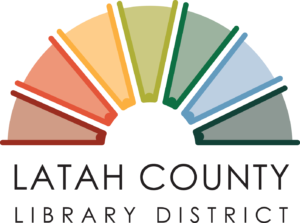
Your Account | Full Catalog
The Moscow Free Library and Reading Room opened in March of 1901 in one room of the Brown Building in downtown Moscow. The library was open two afternoons and two evenings a week and was operated by the Pleiades Club and the Moscow Historical Club. In 1903 members of the two clubs formed a committee to secure funding for a library building from the Andrew Carnegie Library Endowment. The Endowment granted the group $10,000. In 1904 Moscow residents approved a special tax to raise money for the building’s operation. A lot was purchased on the corner of Second and Jefferson Streets and Boise architect Watson Vernon was hired to design the library in the Mission Revival style, unique for northern Idaho. The building was completed in 1906 for just under $9,500, making it one of the last Carnegie libraries funded. The first major building improvement was made in 1931 with an addition that doubled the available space. In 1938 the front steps were rebuilt, replacing the curved stairs which had been a feature of the original architecture. In 1964 the basement was remodeled into a children’s library. Construction started in August 1982 to remodel and add to the original Carnegie building. In April 1983 the building was opened to the public, with the Carol Ryrie Brink Reading Room in the historic Carnegie building designated a special place for the children of the community. This addition more than doubled the space again. The Moscow branch serves as headquarters of the Latah County Library District, housing the administrative, adult services, youth services, access services and technical services departments. The Moscow Carnegie Library was placed on the National Register of Historic Places in 1979. More information about the library may be found on the Society of Architectural Historians’ “Archipedia” website.
110 S. Jefferson St. Moscow, ID 83843
Mailing Address: 110 S. Jefferson St. Moscow, ID 83843
208-882-3925
Friends of the Moscow Library
The Friends of the Moscow Library meets regularly to plan their semi-annual book sale held at the Latah County Fairgrounds. Funds raised by the Friends support Moscow programs such as Summer Reading, Everybody Reads, Books for Babies at Gritman Medical Center, and various capital projects.
Moscow Community Resources
Discover the people and organizations working to keep your local community a great place to live.
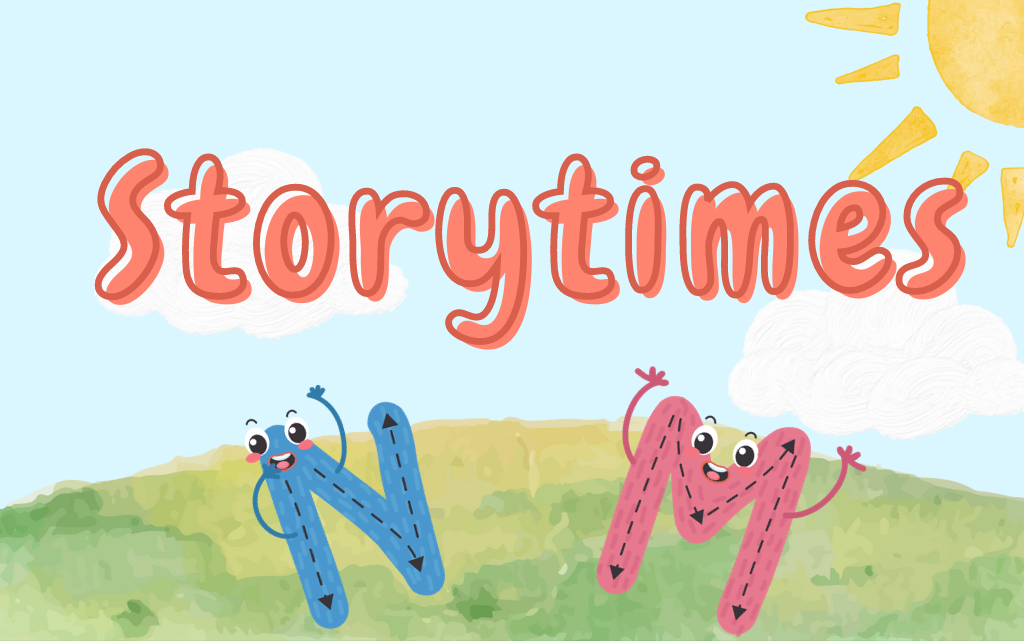
Moscow Storytimes
Babes & Books : Introduce your littlest family members, babies 15-months and under, to the library. Enjoy stories, toys, and meeting new faces. Tots and Tales : Bring your kids ages 3-5 for songs, rhymes, stories, and fun activities!
New on the Shelves in Moscow
New adult books.

New Youth Books

Upcoming Events in Moscow
Moscow – death café, moscow – summer reading kickoff party, moscow – tuesday teabirds book club, moscow – adventure storytime, moscow – jenks the musician, holiday closure, moscow – reptile man, moscow – teens try it: open make.
110 S. Jefferson St. Moscow, Idaho 83843
208.882.3925
Digital Library
Events Calendar
Lorem ipsum dolor sit amet, consectetur adipiscing elit, sed do eiusmod tempor incididunt ut labore et dolore magna aliqua. Nibh tortor id aliquet lectus proin nibh nisl condimentum. Placerat in egestas erat imperdiet sed. Egestas tellus rutrum tellus pellentesque eu tincidunt tortor aliquam nulla. Sagittis nisl rhoncus mattis rhoncus urna. Sit amet nulla facilisi morbi tempus iaculis urna id. Imperdiet massa tincidunt nunc pulvinar sapien et ligula ullamcorper. Non consectetur a erat nam at lectus urna duis. Aliquam eleifend mi in nulla posuere sollicitudin aliquam ultrices. Congue nisi vitae suscipit tellus mauris. Nunc id cursus metus aliquam eleifend mi in.
Morbi tristique senectus et netus et malesuada fames. Vitae semper quis lectus nulla at volutpat diam ut. Accumsan sit amet nulla facilisi morbi tempus iaculis. Lectus quam id leo in vitae turpis. Nascetur ridiculus mus mauris vitae ultricies. Iaculis at erat pellentesque adipiscing. Cursus metus aliquam eleifend mi in nulla. Donec ac odio tempor orci dapibus. Egestas sed tempus urna et pharetra pharetra. Nisi lacus sed viverra tellus in hac habitasse. Integer vitae justo eget magna fermentum iaculis eu non. Massa placerat duis ultricies lacus. Felis imperdiet proin fermentum leo vel orci porta. Aliquam sem et tortor consequat id porta nibh venenatis. Amet luctus venenatis lectus magna fringilla urna. Faucibus interdum posuere lorem ipsum dolor sit amet consectetur adipiscing. Proin nibh nisl condimentum id venenatis. Eleifend donec pretium vulputate sapien nec. Massa placerat duis ultricies lacus. Ridiculus mus mauris vitae ultricies leo integer malesuada.
Est pellentesque elit ullamcorper dignissim cras tincidunt lobortis feugiat. Accumsan lacus vel facilisis volutpat. Auctor elit sed vulputate mi sit amet mauris. Ullamcorper morbi tincidunt ornare massa. Eu non diam phasellus vestibulum lorem sed risus. Mattis aliquam faucibus purus in massa. Facilisis volutpat est velit egestas dui. Ut tristique et egestas quis. Scelerisque eu ultrices vitae auctor eu. Et egestas quis ipsum suspendisse ultrices gravida dictum fusce.
Vitae proin sagittis nisl rhoncus mattis rhoncus. Amet venenatis urna cursus eget nunc scelerisque. Arcu bibendum at varius vel pharetra vel. Malesuada fames ac turpis egestas integer eget aliquet nibh. Dapibus ultrices in iaculis nunc sed. Amet tellus cras adipiscing enim eu. Pellentesque massa placerat duis ultricies lacus sed turpis. Pellentesque sit amet porttitor eget dolor morbi. Et netus et malesuada fames ac. Ipsum dolor sit amet consectetur adipiscing. Cursus turpis massa tincidunt dui ut. Eu turpis egestas pretium aenean pharetra magna ac placerat. Condimentum lacinia quis vel eros donec ac odio tempor orci. Ultrices eros in cursus turpis. Ut eu sem integer vitae justo eget magna fermentum.
Scelerisque mauris pellentesque pulvinar pellentesque. Dictum non consectetur a erat nam. In massa tempor nec feugiat. Eu scelerisque felis imperdiet proin fermentum leo vel. Tempus urna et pharetra pharetra massa massa ultricies. Netus et malesuada fames ac turpis egestas maecenas. Commodo viverra maecenas accumsan lacus vel. Tristique nulla aliquet enim tortor at auctor urna nunc id. Est placerat in egestas erat imperdiet. Tortor at auctor urna nunc id cursus metus aliquam eleifend. Consectetur libero id faucibus nisl tincidunt eget nullam. Mus mauris vitae ultricies leo integer. Risus in hendrerit gravida rutrum quisque non tellus orci ac. Gravida dictum fusce ut placerat orci nulla pellentesque dignissim. Pharetra vel turpis nunc eget lorem dolor sed viverra ipsum. Faucibus a pellentesque sit amet porttitor.

The Clinton-Yeltsin Relationship in Their Own Words
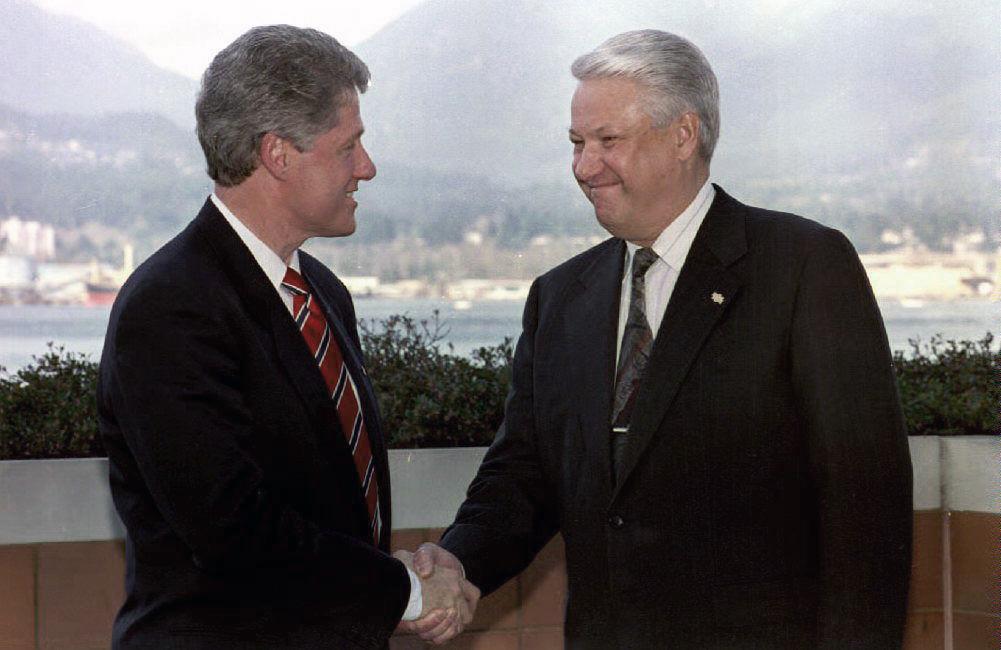
First summit between Clinton and Yeltsin, Vancouver April 3-4, 1993 (Getty Images)
Clinton Presidential Library Releases Memcons and Telcons of the 1990s
“We’ll build the partnership on the basis of our friendship, yours and mine, and we’ll do so for the sake of world peace”[1]
“I understand your point Bill, and I will act as you suggest I should, especially since this is part of past practice established between you and me, and it has never failed us in the past” (Yeltsin to Clinton, September 12, 1998)
Washington, D.C., October 2, 2018 – President Bill Clinton saw Russian leader Boris Yeltsin as indispensable for promoting American interests following the collapse of the Soviet Union, often prompting him to take controversial steps to ensure Yeltsin’s political survival, according to top-level memoranda of conversation just released from the Clinton presidential library.
Clinton believed backing Yeltsin personally was necessary to ensure Russian stability and market reform, which he privileged over the development of democracy in the former Soviet republic, a careful reading of the presidential memcons shows. These priorities led to the U.S. tolerating election irregularities, and doing little to oppose Yeltsin as he empowered oligarchs and installed Vladimir Putin as his successor, among other consequences.
The new records confirm the Bill-Boris camaraderie was genuine but also masked a complex relationship and ultimately an uneven partnership that reflected the diametrically opposite political and economic trajectories of their two nations in the 1990s.
By Svetlana Savranskaya and Mary Sarotte
In July 2018, students of U.S.-Russian relations added hundreds of pages of declassified documents to their required reading list when the Clinton Presidential Library released almost all memoranda of Clinton-Yeltsin conversations in response to requests by historian Mary Sarotte in 2015. Today the National Security Archive publishes the highlights of this release.
The partnership between the United States and Russia that Presidents Bill Clinton and Boris Yeltsin tried to build in the 1990s succeeded only in part – but even that partial success helped to make the world a safer place. Cooperation on non-proliferation efforts, particularly within the framework of the Nunn-Lugar program, led to the successful withdrawal of nuclear weapons from Belarus, Kazakhstan, and above all Ukraine (briefly the third-largest nuclear power in the world due to the amount of Soviet-era weaponry on its territory). [2] The Clinton-Yeltsin cooperation also enabled the safe dismantlement and storage of nuclear weapons in Russia as it complied with the START I treaty. Russia even participated in the international peacekeeping mission in Bosnia, became a member of the G-8, and joined the Council of Europe. In return, the Clinton administration provided badly needed economic assistance and used its leverage with international financial institutions to help Russia.
However, many contentious issues damaged the partnership along the way – most importantly NATO expansion and the military campaign in Kosovo. And, behind the rhetoric of equality and friendship lay the undeniable reality of an enormous power and status disparity. Russia was no longer the superpower that had challenged the United States at the height of the Cold War, and it was not even the declining-but-democratizing Soviet Union of Mikhail Gorbachev. Moscow often felt disrespected, and claimed that its interests and priorities were not being duly considered. For its part, the United States was willing to cooperate only – in Strobe Talbott’s words – on “what we deem to be [Russia’s] legitimate security concerns,” not on everything the Russians claimed to be important. [3]
In order to learn more about this crucial era, many years ago the Archive began spearheading an effort to get specific relevant documents declassified. In the summer of 2012, files began trickling in, first from the State Department and then from the Clinton Library, largely in response to itemized requests for specific summit meeting materials made by Archive staff (Svetlana Savranskaya and Tom Blanton) as well as by James Goldgeier with the assistance of Catherine Nielsen. These initial, limited declassifications gave us an important first glimpse behind the scenes of Clinton-Yeltsin conversations, including at the Cologne summit of 1999. Another group of requests produced two particularly significant Clinton-Yeltsin conversations, in Moscow and Halifax in 1995, at the crucial point just before both men’s make-or-break reelection bids of 1996. [4]
Starting in the spring of 2015, Mary Sarotte decided to invest time in a broad-brush approach. She began a three-year process of compiling and filing omnibus requests to the Clinton Library and, when those did not succeed, pursued numerous appeals with the Interagency Security Classification Appeals Panel or ISCAP. [5] She finally won some of those appeals in 2018, and the Clinton Library declassified a phenomenal set of memcons and telcons as a result. Even better, the Clinton Library declassified nearly all of the pages of her massive requests with no redactions. It therefore becomes possible to read almost the entire history of top-level U.S.-Russian interactions in the contemporaneous words of Clinton and Yeltsin in one (admittedly very long) sitting. Two archivists at the Clinton Library who worked closely with the Archive and Sarotte over the years – Rob Seibert and Kelly Hendren – along with Meredith Wagner of ISCAP deserve enormous credit for their hard work, which has provided students of history and diplomacy with a major scholarly opportunity.
What do these new sources tell us? The selection of documents below, chosen both from the earlier requests and the 2018 Sarotte release, sheds new light on the most important issues in U.S.-Russian relations in the 1990s. They show Clinton as an empathetic and committed champion of the new Russia, willing to use his political capital to help his friend Boris in tough times, such as during the Russian constitutional crisis of 1993, or the close-run presidential election of 1996. However, the documents show that Clinton understood the need to balance his relationship with Yeltsin against other priorities of US foreign policy. While Clinton’s stated top goal was to help Russia become a democratic country – one fully integrated into the Western institutions – that goal often clashed with other U.S. interests. These interests included: expanding NATO to secure its presence and role in Europe and to expand democracy and security to East-Central Europe; denuclearizing the former Soviet space and making sure that Russian weapons of mass destruction were securely dismantled; limiting Russia’s role in its “near abroad”; stopping Russian trade in nuclear technologies with Iran and India; and managing conflict in the former republic of Yugoslavia.
Clinton saw Yeltsin personally as an indispensable partner in achieving his goals. Only Yeltsin’s continued leadership, the White House believed, could guarantee Russian cooperation on U.S. priorities. The perception of Yeltsin as irreplaceable gradually led to the difficult situation where U.S. backing for the Russian democratic transition consisted largely of promoting its favorite “democrat,” Yeltsin, as the only game in town – even as he was quickly becoming an autocrat in reality. For his part, Yeltsin painted his opponents in the 1996 elections as the ultimate evil: unreformed communists who would attempt to reinstate Stalinism, and take back not only Crimea but also Alaska. The newly available documents show that, in response, Clinton took many steps to increase the chances that Yeltsin would win the Russian elections of 1996, including making presidential visits, delaying visible progress on NATO expansion, and pressing Congress and international financial institutions to provide Russia with loans that would allow Yeltsin to pay salaries and pensions during the critical campaign period. For his part, Yeltsin openly asked his friend to provide $2.5 billion and complained that he only received $300 million of IMF loans.
To ensure that Yeltsin survived, Clinton was willing to close his eyes to electoral irregularities, the rise of the oligarchs, the war in Chechnya, and the rising corruption in the new Russia. The administration’s policy essentially supported Russia’s economic liberalization as it developed into a form of robber-baron capitalism, or “market Bolshevism,” rather than developing into genuine democratic institutions and practices. [6] Put bluntly, Russian stability and the implementation of the flawed market reform turned out to be more important in practical terms than the healthy development of Russian democracy. Tellingly, when Yeltsin reveals to Clinton in the fall of 1999 that he has chosen a successor – former KGB officer Vladimir Putin – and will do everything possible to get Putin elected as the next president of Russia, Clinton seemingly accepts Yeltsin’s choice as another one of the measures needed to guarantee Russian stability.
Overall, the documents reveal the complexities of the Clinton-Yeltsin relationship. At once very warm and personal, but at times confrontational and contentious, the sources show an unequal partnership that was neither fully genuine nor fully instrumental but somewhere between the two. On the one hand, Yeltsin tried to play up the personal connection that the two fellow presidents had made, suggesting correctly that they were able to overcome many controversial issues through their personal regard for each other. And there is no doubt that their closeness certainly helped Yeltsin in his domestic political struggles. On the other hand, the sources show that their dialogue was carried out essentially on American terms, with Clinton making suggestions and proposals and Yeltsin often accepting, even when he initially objected. In response to arm-twisting by Clinton, Yeltsin would often accede and respond simply, “I understand.” [7]
This is not to say that Yeltsin was passive; he made significant proposals of his own, such as on European security structures, cuts to armaments, and even on getting rid of the “nuclear football” (the briefcase that always accompanied both leaders, allowing them to launch nuclear attacks at any time). [8] Yeltsin genuinely tried to promote Russian interests. But he was doing so at a time when, simultaneously, Russia fell into steep economic and political decline and the U.S. rose to the heights of its “unipolar moment.” The interactions of these two world leaders at this crucial juncture – revealed in the documents below – have a legacy that shapes U.S.-Russian relations to this day.
Read the documents

Document 01
William J. Clinton Presidential Library
This is the first meeting between Clinton and Yeltsin as presidents. Starting with this one, in Vancouver, Canada, they will meet 18 times. Both of them are enthusiastic about the things they can do together—helping the Russian reform succeed, improve cooperation in space and energy, share their countries’ cultural achievements, and resolve conflicts in the former Yugoslavia and Georgia. The conversation is upbeat, friendly and full of optimism for the future. Yeltsin describes the challenges in economic reform, explains that his managers only have experience in planned economy and that they only “have passed the exams for the first grade out of ten in market economics.” He introduces his young finance minister, Boris Fedorov, who explains the main elements of the reform program. Treasury Secretary Lloyd Bentsen and his Russian counterpart discuss the urgent needs and suggest issues to be raised at the upcoming G-7 in Tokyo. Yeltsin only mentions the difficult domestic political situation in passing, but his true emotions are revealed when vice presidents are mentioned. He loves Bentsen’s suggestion that his oppositional vice president, Alexander Rutskoy, be sent to space for two years. The presidents joke about the meaning of their names in Russian—Bill means “hit,” and Boris “means fighting, struggling with no result!” The document reveals real warmth and chemistry emerging between Bill and Boris, who decide at this dinner to call each other by the first names, and the sense that anything is possible if they work together.

Document 02
During the September 1994 Yeltsin state visit to Washington, the presidents covered the entire spectrum of U.S.-Russian relations including Russian economic reform, pulling nuclear weapons out of Ukraine, Iran, North Korea, the post-Soviet space and, surprising the U.S. officials, the nuclear “football”. On 27 September, after a wide-ranging discussion of security issues, Yeltsin proposed getting “rid of the nuclear footballs.” With the advanced state of communications, he saw no need to have someone “drag around one of these briefcases.” [9] [ See William Burr EBB No. 632 ] As Russian Defense Minister Pavel Grachev summarizes progress in dismantling nuclear missiles, he explained his government’s position on tactical nuclear weapons. In contrast to the United States, which had withdrawn overseas tactical nuclear weapons, Russia "cannot destroy all tactical nuclear weapons” because "within reasonable bounds we need some" for deterring possible aggression from “states to the south.” Near the end of the conversation, Grachev briefly raises the problem of limiting nuclear submarine patrolling zones because “some submarines have entered our territorial waters and we almost had a catastrophe.” That was a reference to the several recent collisions between U.S. and Russian submarines, one of them occurring in March 1993, just before the first Clinton-Yeltsin meeting in Vancouver. The two presidents agree to talk about the problem at their next meeting, but information on any further discussion has yet to be released. The next day’s discussion, along with a private Clinton-Yeltsin luncheon, focuses on two sensitive issues—the Russian biological warfare program and NATO expansion. [10] During the meeting on 27 September, Yeltsin says that the Russians has presented a long-awaited paper on their biological weapons activities. That paper, like the record of the discussion on 28 September, remains classified.

Document 03
U.S. Department of State. Date/Case ID: 07 JUL 2004 200000983
On the eve of the 1994 Budapest meeting of the Conference on Security and Cooperation (CSCE), Yeltsin sends Clinton a letter describing the Russian view of European security. He warns against rapid NATO expansion. In many ways, the letter is a preview of Yeltsin’s confrontational “cold peace” speech, which would shock Clinton and the world media only days later at the Budapest meeting itself. Here Yeltsin writes that Russians see the institutionalization of CSCE into the Organization for Security and Cooperation in Europe, or OSCE, as a major step toward creating a “full-fledged all-European organization with a sound legal basis.” Of particular importance to Moscow is the fact that the OSCE will include all the aspiring NATO candidates among its members, as well as the United States and Russia as partners of equal standing. In other words, the Russians view the OSCE as the only fully integrative post-Cold War structure and think, as a result, that it should be developed and strengthened by Moscow and Washington jointly. In contrast, expansion of NATO would, in Moscow’s view, divert energy and attention from this more important all-European project. Referring to their last conversation during the late September summit in Washington, Yeltsin writes that “we have agreed with you that there would be no surprises, that first we should pass through this stage of partnership, whereas issues of further evolution of NATO should not be decided without due account to the opinion and interests of Russia.” The Russian leader warns that discussions with prospective members and developing timetables “will be interpreted and not only in Russia as the beginning of a new split of Europe.”

Document 04
Yeltsin is very appreciative of the fact that Clinton has come to Moscow to celebrate the 50th anniversary of their shared victory in World War II. This long and wide-ranging conversation is remarkable as a glimpse into the Bill-Boris relationship, particularly because it contains Yeltsin’s cri de coeur on NATO. He sees “nothing but humiliation” for Russia if NATO expands, calling it a new form of “encirclement.” Yeltsin argues for a new European security system, not the continuation of an old bloc. He says emotionally that “for me to agree to the borders of NATO expanding toward those of Russia – that would constitute a betrayal on my part of the Russian people.” In response, Clinton patiently and clearly explains the U.S. position on NATO expansion: that it should be seen in the context of continuing U.S. involvement in European security, and an effort to create a fully integrated Europe. He hints at trade-offs if Yeltsin accepts NATO expansion, namely, that Russia could become a founding member of the post-COCOM (Coordinating Committee for Multilateral Export Controls) regime, join the G-7, and have a special relationship with NATO – but only if Russia “walk[s] through the doors that we open for you.” Yeltsin’s urgent priority is the upcoming elections; he confides in the U.S. president that his “position heading into 1996 elections is not exactly brilliant.” He asks the president to postpone the expansion discussion until at least after the election. In response, Clinton is straightforward about his own electoral pressures, from Republicans and from voters in Wisconsin, Illinois and Ohio, all pushing for NATO expansion. Yeltsin eventually agrees reluctantly to Clinton’s proposal that there will be no NATO decisions until after elections are over, only a study of expansion. Yeltsin needs Clinton’s support to win the 1996 elections and he sees no alternatives other than relying on the American’s assurances.

Document 05
William J. Clinton Presidential Library (released by Department of State)
IIn this meeting with Clinton, Yeltsin returns to the subject of NATO and once again emphasizes Russian priorities. Yeltsin seeks a treaty or some other, special accord between NATO and Russia; but, most importantly, he promotes the OSCE as “the principal mechanism” for building a new security order in Europe. “NATO is a factor, too, of course, but NATO should evolve into a political organization” he adds. The Russian president prioritizes success in building a new European security order above all other projects. Clinton does not directly respond, but talks about the importance of the fact that Russia’s and NATO’s militaries are working together and engaging in peacekeeping. The character of this meeting is cordial. The two leaders reach mutual understanding on difficult issues such as sales of reactors to Iran, on policy toward North Korea, and on nuclear testing, START and the Conventional Forces in Europe (CFE) accord – although these understandings are mostly on U.S. terms, with Clinton proposing and Yeltsin accepting. Yeltsin believes that their personal partnership is crucial to their success: “We’ll build the partnership on the basis of our friendship, yours and mine, and we’ll do so for the sake of world peace.” At one point the Russian leader even reaches out and pats Clinton on his knee.

Document 06
Clinton initiates this call and congratulates Yeltsin on announcing his candidacy for the upcoming Russian presidential elections. (At the time, Yeltsin’s approval rating was in the single digits, and Communist Party candidate Gennady Zyuganov seemed to be the likely winner). Clinton encourages Yeltsin, praising the Russian leader for “guaranteeing free and fair elections.” Clinton is planning to visit Moscow in April, mainly to shore up Yeltsin’s electoral chances. The U.S. President asks Yeltsin to put pressure on the Russian Duma to ratify START II so that the two presidents might exchange instruments of ratification during the visit. (This exchange does not happen, due to the Duma’s strong opposition to NATO expansion and to its perception that the U.S. intends to modify, or withdraw from, the ABM treaty). Clinton also urges Yeltsin to reach a peaceful settlement in the Chechen war, which Yeltsin promises to “finish, finish this up, before the election.” He emphasizes their personal “partnership and friendship,” which is especially important “during this election year.” For his part, Yeltsin raises their May 1995 agreement on NATO expansion: “you and I agreed that for one year there would be some kind of hiatus and that no one would raise this issue very strongly” before the elections. Clinton reassures him that, true to their agreement, only informal conversations are taking place with future candidates. There were no set timetables no decisions taken: “there will be no surprises on the agenda. We are going to stay with the agreement.” At the end of the conversation Yeltsin thanks Clinton profusely and asks for money. He wants Clinton “to use your influence [with the IMF] to perhaps add a little, from 9 to 13 billion dollars – to deal with social problems in this very important pre-election situation and help the people.” Clinton promises to “do some work on it.”

Document 07
Yeltsin calls Clinton to report on his trip to China and to ask, again, for financial support. The Russian president reports that Jiang Zemin wants to begin improving relations with the United States and adds that Beijing would like to “take part in the CTBT [Conventional Test Ban Treaty].” Clinton asks Yeltsin about Chechnya (following up on a recent letter on this subject) and suggests that Yeltsin should engage King Hassan, who has agreed to help arrange a peaceful settlement. Yeltsin tells his counterpart that he has decided to fly to Chechnya and to participate in trilateral negotiations between the Chechen government, the field commanders and the federal government. Then Yeltsin raises the main issue: “Bill, for my election campaign, I urgently need for Russia a loan of $2.5 billion.” He says he only had received $300 million, and IMF officials tell him another billion would first become available later, in the second half of the year. Yeltsin makes clear that he needs the funds right away, before the election, in order “to pay pensions and wages.” Clinton promises to check on the matter. He then thanks Yeltsin for making progress on a dispute about CFE (the flank issue) and expresses hope that the matter will soon be finalized. Clinton also comments that Yeltsin did the right thing in not postponing the elections (as some members of Yeltsin’s circle, such as his bodyguard Alexander Korzhakov, had suggested) because, in Clinton’s view, “this election will be the milestone for Russian democracy.” In conclusion, they return to the issue of loans, and Clinton asks with whom in the Russian government he can have U.S. counterparts deal with this issue. Yeltsin names Deputy Chairman Oleg Davydov

Document 08
The state of Yeltsin’s health often loomed large in the two presidents’ conversations. Yeltsin suffered from a variety of heart and other ailments, exacerbated by a drinking problem, and would periodically disappear for extended hospital stays and recovery periods. In this brief, nine-minute phone call, Clinton praises Yeltsin for the Russian leader’s decision to announce publicly that he will need heart surgery, ending months of official silence and rumors. Yeltsin thanks Clinton, and adds that “it would be a good idea if experts from the U.S. could come to consult for the operation.” The Russian president notes that there is an international conference for heart surgeons scheduled to be held in Moscow on September 26 and 27, 1996, and asks if Clinton would mind if he, Yeltsin, consulted with “your specialists” while they are here. Clinton says “I think that’s a fine idea.” Yeltsin then asks how Clinton sees his electoral chances, and the president responds “I just hope I can do as well as you.” Yeltsin would go on to have successful bypass surgery in November 1996.

Document 09
The Helsinki summit is the first meeting between Yeltsin and Clinton after the Russian president’s multiple bypass surgery in November 1996. The talks cover several crucial issues including the importance of Russian-Chinese-United States cooperation and the problem of nuclear proliferation. Yeltsin makes it clear that he opposes missile sales that could build up India’s nuclear potential. On Iran, which Clinton asks about, Yeltsin declares that he also opposes missile sales to Iran but not submarines or nuclear power stations. He is more doubtful about the proposed sale of an enrichment plant to Iran because it could bring Tehran “closer to having weapons-grade uranium.” When Clinton mentions recent intelligence that “some very dangerous” missile technologies “have reached Iran from Russia,” Yeltsin denies the reports, arguing that technology is from China or North Korea. Asking about U.S. efforts to “build bridges” to Iran, Clinton acknowledges that he “was willing to talk to them as long [as] terrorism is one of the issues on the agenda, but they always refuse.” The United States cannot have discussions with Iran “in ways that might make it see that we’re acquiescent in Iranian behavior that threatens our people, our friends, and our allies.” Three years after Yeltsin first proposed it during the Washington summit, he shows that he remains interested in getting rid of the nuclear Football. Recalling that during his recent surgery he passed temporary control over the Football to Prime Minister Viktor Chernomyrdin, Yeltsin mentions that he took part in a recent nuclear exercise with the Russian Football where a nuclear weapon was launched at the Kamchatka Peninsula. That reminds Clinton of the plot of the “The Crimson Tide,” which involved “nuclear hair triggers,” but which his advisers have told him “could not actually happen.” [ See William Burr EBB No. 632 ]

Document 10
This hour-long conversation takes place in the Gold Room of the Brown Palace during the Denver summit. Yeltsin, as part of his recovery from his surgery of November 1996, claims he has “lost 30 kilograms” and that he is now “moving with more energy.” Clinton responds “[y]ou look good” and Yeltsin quips “I prefer that women would tell me that!” They go on to discuss various aspects of arms control, until Yeltsin has to admit that “I am not as up on the issues as I should be.” Clinton emphasizes that his goal is successful completion of START III (a goal he will never achieve, as negotiations will eventually break down). The president pushes Yeltsin on “reports that we have that Russians – not you – are providing cooperation with Iran on SA-10 missiles and ground-to-ground medium-range ballistic missiles.” While the U.S. hopes that “elections will lead to a new course in Iran,” Clinton “can’t imagine anything more destabilizing than an Iranian capability to deliver weapons of mass destruction over intermediate-range distances.” Yeltsin insists that Russia is delivering “nothing in the way of complete missiles, just parts of missiles.” He promises to “establish another commission” to look into this, after a previous commission failed to “provide me with adequate information.”

Document 11
In this 27-minute phone call, Yeltsin asks Clinton “to abide strictly by the provisions of the START I accord. We have some fears that the U.S. is not complying fully with the provisions of the accords that have been reached.” Yeltsin is also concerned about the level of espionage that the U.S. and Russia are conducting against each other, apparently in response to U.S. complaints over “the growing Russian intelligence presence in the U.S.” Yeltsin feels that “neither you nor I need to become enmeshed in a competition over who had more intelligence officers infiltrated in the country of the other side.” The Russian president also complains that Washington is using “the special services of the other countries of the CIS and former Warsaw Pact … against Russia.” Clinton assures Yeltsin that the U.S. will “follow through on our promises on START I.” There is no response to Yeltsin’s comments about intelligence operations in this document, however.

Document 12
Clinton and Yeltsin meet for a summit in Birmingham, England. In this conversation from 11:47 a.m. to 12:33 p.m., Yeltsin expresses concern about the growing criticism he is receiving for his relationship with Clinton. He notes that “I’ve been under fire for this, and so have you.” Yeltsin wants both of them to “push back against the idea that there are deep and irreconcilable tensions in our relations.” They discuss Yeltsin’s forming of a new government, and his attempts to get START II ratified in the Duma. Clinton calls for bilateral cooperation on Kosovo, saying there is “no way to resolve this whole problem unless we continue to work together.” He praises U.S. diplomat Richard Holbrooke for having “unusual chemistry with Milosevic.”

Document 13
Kosovo dominates this conversation. Yeltsin informs Clinton that he has invited Slobodan Milosevic to Moscow. The Russian president indicates that he plans to have “a tough talk with Milosevic” and “demand that the disproportionate use of force be stopped.” Yeltsin suggests he and Clinton should work together to put pressure on their respective allies in Kosovo—Yeltsin on Belgrade and Clinton on the Kosovar Albanians. The Russian president clearly expresses his strong conviction that any “use of force by NATO is inadmissible.” Moreover, “if there should be a strike by NATO against Yugoslavia without UN Security Council sanction, that would be considered a blow to cooperation between Russia and NATO.” In return, Clinton expresses his hope that all parties involved will be able to work through the United Nations and that “no NATO action would be necessary.” The U.S. president hopes Russia and NATO will work on this situation in the Permanent Joint Council, “being honest and open and candid.” Clinton also comments on the dire Russian financial situation and the new government of young reformers headed by 35-year-old Sergey Kirienko (with Boris Nemtsov as deputy prime minister) that Yeltsin had put in place in the end of April. Clinton believes that “what’s happened in Russia with investments and stocks is a function of what’s going on in Asia spilling over.” He assures Yeltsin that “I have been supporting more IMF and World Bank funding for Russia if necessary” and also encourages Yeltsin to make another push to ratify START II.

Document 14
Three days before the Russian default, Clinton calls Yeltsin in preparation for their upcoming meeting in September and to check on the state of the reform program that the embattled Kirienko government has been trying to push through the Russian parliament. The U.S. president warns his Russian counterpart about the looming danger of the Asian financial crisis for Russia and urges him to stay with the reformist course; he also encourages him to work with Yegor Gaidar. The IMF money that Yeltsin is hoping for would not be sufficient if there is no feeling of confidence in the reform in the country and the Duma is uncooperative. Clinton offers to meet with Duma members when he comes to Moscow. Yeltsin in turn proposes that they address the Duma together, and his remark is revealing of his total lack of interaction with the parliament: “members of Duma are not accustomed to seeing their own president on their premises, but if the President of the U.S. comes to Russia and together with the President of Russia you and I go to the Duma and address them, I think that would be a very strong move on our part.” Clinton promises to do “[w]hatever I can do to get them to vote for you and your program.” He talks about the urgency of the situation, and that the next IMF move expected before his visit to Russia might be too late. In the second part of the conversation, Clinton addresses the situation in Kosovo telling Yeltsin that “Milosevich has not kept his promise to you,” and has already displaced 200,000 civilians from their homes. He warns that if the Serbian autocrat “feels he has a green light from Russia for a military solution, it will be much harder to get him to negotiate.” Throughout the conversation, Yeltsin repeatedly refers to the importance of their personal relationship, the “you and me” and how their “views are identical.” Clinton shows genuine empathy and desire to help his Russian partner. The Russian president is quite effusive in signing off: “I hug you, Bill. I give you a good warm hug.”

Document 15
In this conversation, the first since Clinton’s visit to Moscow in early September 1998 and soon after the Russian default, Yeltsin walks Clinton through the new government he has just appointed. His new prime minister is Yevgeny Primakov, a known quantity for the Americans in his prior position as a tough but effective foreign minister since January 1996. His new chairman of the Central Bank, Victor Geraschenko, and Deputy Prime Minister Yuri Maslyukov are holdovers from the Soviet time (Geraschenko was chairman of the USSR State Bank in 1989-1991 and Maslyukov was a full Politburo member and deputy defense industry minister in the USSR). Clinton expresses his concern about the new government being seen as conservative and anti-reformist: “as a friend I owe it to you to say the appointments you made raise concerns that Russia will return to the hyperinflation Russia suffered in 1992.” This telcon gives great insight into how the relationship between the two presidents worked. Clinton starts the conversation by praising Yeltsin for leading his country through a difficult financial crisis “under tremendous political pressure” and saying that Yeltsin “held true to your role of being the father of Russian democracy.” Later in the conversation Clinton expresses his concerns and suggests specific things he hopes Yeltsin could do to address them. In the end of the conversation, Yeltsin agrees with Clinton’s suggestions and characteristically promises: “I understand your point, Bill, and I will act as you suggest I should, especially since this is part of past practice established between you and me, and it has never failed us in the past.”

Document 16
JJust three and a half hours before the start of the NATO strikes on Belgrade, Clinton calls Yeltsin to inform him about the allied decision. Yeltsin is angry about not being consulted, either through the Russia-NATO Permanent Joint Council or through the Contact Group on Yugoslavia and he makes a last-ditch effort to stop the strikes. Clinton explains his reasoning: that he is repulsed by Milosevich’s latest evacuation of Albanian villages (he is careful not to use the term “ethnic cleansing” or “genocide”) and frustrated with the futile effort to negotiate with the Serbian leadership over the last year. But for Yeltsin, this is the red line—the newly expanded NATO, without going through the UN Security Council and over strong and consistent Russian objections, is about to bomb a Russian ally—and a personal humiliation, which would cost him dearly at home. Yeltsin appeals to their friendship, alternatively threatening and pleading with Clinton. He threatens that the Russians “have many steps to aim against your decision, maybe inadmissible steps,” that the Duma will not ratify START II Treaty and that it would forever damage their friendship. Clinton in response reminds him that “I have always been there for you, working hard with my people to support Russia economically. I came there last Fall. I was there in 1996 when a lot of people said I shouldn’t go.” The Russian president then pleads: “In the name of our future, in the name of you and me, in the name of the future of our countries, in the name of security in Europe, I ask you to renounce that strike,” and prophetically comments that “our people certainly from now have a bad attitude with regard to America and with NATO.”

Document 17
This document and the next, among the final conversations between Clinton and Yeltsin before the latter suddenly resigns at the end of the year, are primarily of interest for what they reveal about the selection of Putin as Yeltsin’s successor. Yeltsin informs the U.S. president that he “took a lot of time to think who might be the next Russian president in the year 2000.” In theory that choice would in the hands of the voters, but Yeltsin clearly thinks otherwise. After much searching, Yeltsin tells Clinton, “I came across him, that is, Putin, and I explored his bio, his interests, his acquaintances, and so on and so forth.” Yeltsin came to the conclusion that Putin was “highly qualified.” While Yeltsin does not explain how he will ensure that Putin becomes his successor, in the year 2000 Yeltsin and his daughter, Tatyana, regale Clinton and Strobe Talbott (as described in Talbott’s book The Russia Hand, p. 7) with “a self-congratulatory account of how he had maneuvered Putin from obscurity into the presidency over fierce resistance,” a feat Tatyana called “‘one of the hardest things we ever pulled off.’” Talbott also chooses not to share details, so the exact nature of the deals struck behind the scenes at the time of this critical power transition in Russia remain murky to this day.

Document 18
The final phone conversation between Clinton and Yeltsin before the latter leaves office is a brief affair, lasting ten minutes. Clinton congratulates Yeltsin on a “courageous decision” to resign, adding pointedly that the U.S. “will work with Putin and the Russian people as they make their choice for the next democratically elected president.” Yeltsin indicates that “this was not an easy decision for me” but the he had wanted to “support Putin 100 percent and now I’ve given him three months” for people to “get used to him” – in other words, the advantage of incumbency. Yeltsin is leaving secure in the knowledge that “Putin is a strong person and he will be able to cope with the task he has.”
[1] Yeltsin to Clinton on June 17, 1995 in Halifax (see Document 5 of this posting).
[2] For more on Nunn-Lugar, see the Archive’s Electronic Briefing Book No. 447, Svetlana Savranskaya and Tom Blanton, “ Nunn-Lugar Revisited .”
[3] Ronald D. Asmus, Opening NATO’s Door: How the Alliance Remade Itself for a New Era , (New York, 2002), 171.
[4] Svetlana Savranskaya and Tom Blanton, “ NATO Expansion: What Yeltsin Heard ,” National Security Archive Electronic briefing book.
[5] For more information about ISCAP, click here .
[6] See Peter Reddaway and Dmitry Glinsky, The Tragedy of Russia’s Reforms: Market Bolshevism against Democracy (Washington, D.C., The United States Institute of Peace, 2001).
[7] Clinton-Yeltsin memcon, May 10, 1995, Moscow. (see Document 4 of this posting).
[8] See the Archive’s Electronic Briefing Book #632 by William Burr, “ Presidential Control of Nuclear Weapons: The “Futball. ”
[9] . For a depiction of Yeltsin during the 1994 meetings and the “half-baked” proposals that he made during the first meeting, see Strobe Talbott, The Russia Hand: A Memoir of Presidential Diplomacy (New York: Random House, 2002), 134-137.
[10] . Ibid., at 135-136, for the luncheon discussion of NATO.

IMAGES
VIDEO
COMMENTS
These sample letters serve as useful guides for someone seeking to write a letter requesting permission to use library resources for several reasons: Professional Tone: The writers have used formal and respectful language, which is appropriate for professional correspondence. The use of polite salutations and closings adds to the professional ...
Request Letter to University for Library Access - Sample Letter to University Requesting for Access to Library When writing a request letter for library access to a university, it's important to be clear, polite, and provide necessary details. State your name, department, and roll number.
The public library is an amazing place that allows us to expand our knowledge freely. Writing a letter to your friend advising him to visit a public library can be a great way to help him enhance his overall knowledge. However, this topic is part of academic writing, where you are required to express your thoughts and ideas communicatively.
So, you want to host an author — either in person or virtually — at your library. Where do you start? When do you start? And what do you say in the dreaded pitch email?Library marketing contacts at each publishing house are happy to work with you to arrange author visits, but it helps to be prepared. We spoke to several publisher marketing reps and asked how library workers can make their ...
Step Three : Issue the invitation. Provide the details of your proposed visit in a short letter of invitation which you can fax or e-mail to the district office. Follow-up with a phone call and get the planning process underway! ... A "library visit" is an in-person visit by an elected official or member of his or her
Write a thank you letter to the children's or teen's librarian or community volunteers. Encourage students to include what book title they would like to borrow first with their new library cards. ... Make sure to prioritize a program at your school library or see if the public library has school-visit programs. Virtual field trips ...
This letter, besides being an attempt to invite, your attention to my work, is also meant to request your permission for access to your library, which I wish to use solely for reference. If you agree to my interest, kindly inform me accordingly. Your response, which I eagerly await, may be sent in the accompanying self-addressed, stamped envelope.
How to write a letter to your principal asking for permission to use the school library after school hours for the project? Ans: Here is a short sample of letter writing asking for permission to use the school library: Dear Principal, I am working on an important project and require access to the library resources after school hours. Please ...
You can request a library visit letter at the library issue desk. When visiting the library in question you must bring this letter and your LIT ID with you in order to gain access.
The first step in arranging to visit a center recognized in your specialty is a letter requesting permission. Whether you are planning to work there, to ask for a fellowship, or to simply pay a short informal visit to a center of excellence, you will have to get in touch with the hospital and obtain their approval.
This is a great place for your library's branding and contact info. Planning for Your Newsletter. Keep these five steps in mind as you plan your newsletter: 1. Determine your goals. 2. Set up for success. 3. Gather intelligence.
Q. Write a letter to your friend advising to visit the public library in her /his locality as frequently as possible. Dear Roshan , I admit my mistake of not writing to you for long .I hope this letter finds you In good health .
I am writing this letter to encourage you to visit a public library and enjoy the experience. Visiting a public library is a great idea. You can find all sorts of interesting books there, from exciting stories to helpful information.
A great librarian cover letter conveys what you'll bring to the library and community. Use our cover letter example and free templates to get started.
196 Permission Letter for Library - Free download as Word Doc (.doc / .docx), PDF File (.pdf), Text File (.txt) or read online for free. The document is a permission letter from final year architecture students at Bhagvan Mahavir College of Architecture requesting permission to reference thesis projects from another college to help with their own thesis.
Here's a librarian cover letter sample to get you the library job interview, along with plenty of tips to help you write the best library cover letter ever.
My dear friend, Last Monday I received your letter. I am very glad to know that you are well with your family. In your letter, you wanted to know about my school library. So I am writing this letter to tell you about it. A library is a place where books on various subjects are kept. A library forms a vital part of a school.
Learn what to include in a librarian cover letter, explore tips for writing your own and review a sample cover letter for a librarian job.
The Moscow branch serves as headquarters of the Latah County Library District, housing the administrative, adult services, youth services, access services and technical services departments. The Moscow Carnegie Library was placed on the National Register of Historic Places in 1979. More information about the library may be found on the Society ...
In the same connection to consult some latest books and magazines I went to the _____ (library Name) in _____ (Place Name). I had never been to this library before but had heard a lot about it. I found the Library fully air-conditioned and therefore, an ideal place for serious study.
Document your visit with notes and photos to reference later. Prepare ahead of time: Avoid attending a campus visit on a whim. Instead, schedule your visit in advance, make plans for a college or program visit, explore our virtual resources, review a map to understand the layout of our campus and make travel arrangements.
Washington, D.C., October 2, 2018 - President Bill Clinton saw Russian leader Boris Yeltsin as indispensable for promoting American interests following the collapse of the Soviet Union, often prompting him to take controversial steps to ensure Yeltsin's political survival, according to top-level memoranda of conversation just released from the Clinton presidential library.
A gent who signs himself "Director of Library of Social Sciences of the Academy of Social Science of the U.S.S.R." has recently written a letter to the Industrial Worker.. We believe that such a gent should be taught some social science!